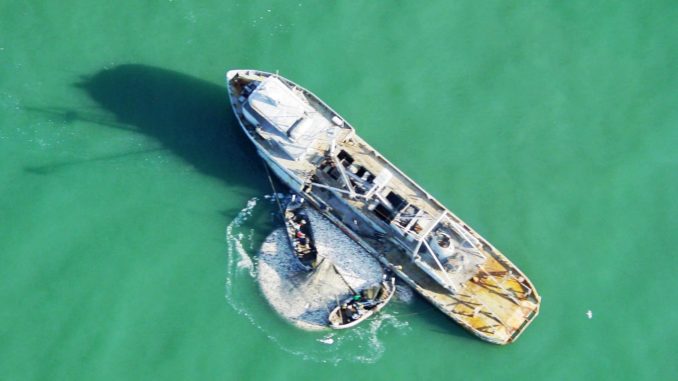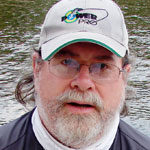
Fishery management commission agrees menhaden plan needed.
Atlantic Coast recreational fishermen have been asking for a reduction in the menhaden harvest for a decade or more, and the Atlantic States Marine Fisheries Commission finally agreed at its annual meeting in early November.
With a lopsided margin, the ASMFC voted to set a reduction that could be as high as 37 percent through a fishery management plan to be formulated through research and public meetings held in the coming months.
“The most critical thing that happened today is that the debate over whether or not to manage menhaden at all, is over,” Richen Brame, Coastal Conservation Association Atlantic Fisheries Director said after the historic vote on Nov. 9. “Clearly these fish do, indeed, need to be managed, and managed conservatively.
“The debate now becomes about how conservatively should they be managed, and that is a much better scenario for menhaden, for sportfish and for anglers. It took a very long time and a lot of work by many, many groups, but the ASMFC did the right thing today.”
The ASMFC regulates the menhaden fishery from eastern Florida to Maine.
Menhaden are not a fish used for human consumption, but many biologists believe they are even more important than the fish directly consumed by humans because they are an important forage fish. Fishery biologists believe the health of many species is directly tied to them having an adequate supply of menhaden for food.
The primary fishery for menhaden involves catching the fish to be boiled to separate them into fish meal and oil. The oil and fish meal are used in a variety of products, including animal foods and dietary supplements.
The East Coast epicenter of menhaden fishing is in Reedville, Va. and a huge plant operated by Omega Protein, a company headquartered in Houston, Texas.
Other smaller fisheries catch menhaden to be frozen for bait for fish and crab traps and ground into chum.
North Carolina also has a live menhaden fishery, in which they are caught to be sold as live fishing baits. Recreational fishermen along much of the East Coast also catch their own menhaden to be used as baits.
Mike Leonard, ocean resource policy director of the American Sportfishing Association agreed with Brame that the ASMFC action is a huge step forward.
“The commission recognized both the impact that menhaden have on the ocean ecosystem and the impact they have on the numerous fisheries that depend on them for survival.
“The sportfishing industry and the thousands of anglers and recreational fishing-dependent businesses thank the Commission for taking this important step in conserving menhaden.”
Recent changes in the way menhaden stocks are evaluated showed they had been overfished for 32 of the last 54 years and have declined over 88 percent to the lowest levels ever recorded.
The ASMFC said it received more than 92,000 comments during the comment period on this, with the input overwhelmingly in favor of protecting menhaden and reducing harvest.
The majority of the comments and speakers at the meeting asked for protection for 40 percent of the maximum spawning potential of the unfished stock, and the Commission decided on 30 percent. This is a major improvement over the current MSP of 8 percent, and will result in a 37 percent reduction in harvest.
North Carolina Division of Marine Fisheries Director Louis Daniel said there could be some economic impact to the state because of the ASMFC move.
“North Carolina is a small player in this, but it will affect us,” Daniel said. “We no longer have a reduction plant here, but some of the people who used to work on the boats and in the plants here now work for Omega Protein at their (Virginia) plant. They occasionally come to North Carolina waters, primarily off the Outer Banks, to fish, but their paychecks come back to support their families that are still living here, many in Carteret County.”
The decision also could hit fishermen.
“We do have a bait fishery that centers on menhaden, and we will have to see how any regulations may affect it,” Daniel said. “It could even affect the recreational fishery. There could be a creel limit set on menhaden caught for bait, like there is for cast-netting bait shrimp in closed areas now.
“We really don’t know exactly where this will go yet.”
He said biologists must make recommendations, and public meetings must be held up and down the Atlantic Coast before the ASMFC Menhaden Committee makes recommendations.
“The plan is to examine this and have options in place so a (fishery management plan) can be voted on at next year’s ASMFC meeting in November,” Daniel said.


Be the first to comment